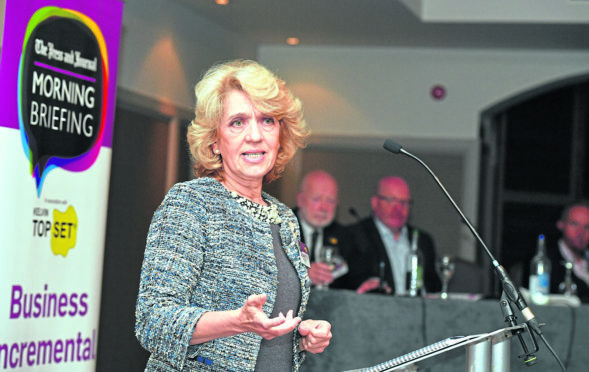Jeanette Forbes is the CEO of PCL Group
We live in one of the most entrepreneurial regions in the UK.
A bold statement perhaps, but one which is backed up by the figures published each year by the European Patent Applications office which shows that applicants from Aberdeen consistently lodge more patents than many of the UK’s largest cities.
A region that thrives and grows on its entrepreneurial culture, its innovative spirit and its enterprising approach to securing a long-term economic future, not only for the north-east, but our export markets can never be underestimated.
In this part of the country, with an economy which has been fuelled to a large extent by an energy sector, many innovations have been developed to support that industry by people and companies prepared to invest time in research and development to bring to the market new products, safer ways of working along with industry-leading solutions to global problems.
But that’s only part of the story. We are surrounded by innovators and entrepreneurs who come from across the spectrum of our other economic foundations of education, life sciences, food & drink, agriculture, tourism, technology and digital; from individuals and companies large and small across every single sector of business.
Collectively, they’ve enhanced our reputation as a region rich in innovation, they’ve attracted new investment and they’ve created the jobs which benefit us as individuals and our economy as a whole.
Some of the most fascinating stories are those which tell of new products, new ideas and new businesses which have been nurtured and developed in someone’s garage, a workshop in their garden shed, in a home office at their dining room table or in their kitchen. But it’s not the working environment which is important; it’s the person who shows us just how passionate they are about their product or idea.
Entrepreneurs and innovators are people who can think outwith the box and who can see-and-seize opportunities before they become obvious to anyone else. How often do we hear people say “I wish I’d thought of that” but the idea was always there, it just took someone with the vision to identify it and the conviction to follow it through, who was brave enough to get it out into the marketplace.
Many of today’s finest entrepreneurs left school without qualifications, without going into higher education–however what they did have was vision, faith in their own abilities, a willingness to work hard, the enthusiasm to learn and the determination to succeed. Some of the most famous and successful entrepreneurs faced additional challenges in life–Richard Branson and Steve Jobs are both dyslexic, as were Leonardo de Vinci, Albert Einstein, Galileo and Alexander Graham Bell.
Having an entrepreneurial spirit also means realising that changes happen and it’s how you adapt to those changes that will distinguish you. You can change direction, you can change track and you can diversify. Many people have gone into business for themselves because they’ve decided the time has come to be their own boss and take charge of their own future; for others the push has come from redundancy or job loss. More often than not it comes from being one step ahead of everyone else, seeing an opportunity, having an idea and belief that it can be a success.
No culture or civilisation can grow without its entrepreneurs, its innovators; the people who identify solutions to problems, who identify gaps in the market which no one else sees, who can diversify and adapt in response to change and challenge. They are the people who bring new companies to the market place, who create jobs, who provide investment, who deliver opportunities for economic growth and who support the foundations of a sustainable economy.
